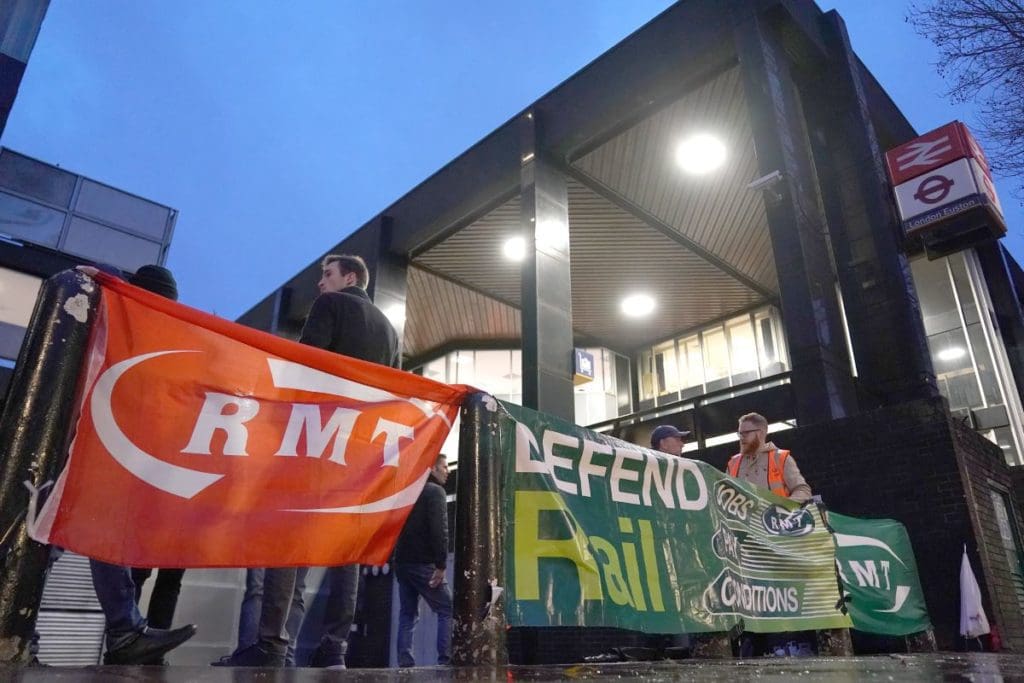Train passengers are undergoing another day of strike disruption as the new general secretary of the Trades Union Congress (TUC) called for an urgent meeting with the Prime Minister in a bid to break deadlocked industrial disputes across the country.

On Wednesday, around half of Britain’s railway lines are closed and only a fifth of services are running as tens of thousands of workers at Network Rail and train operators walk out on the second day of a 48-hour strike by members of the Rail, Maritime and Transport union (RMT).
Train drivers in the Aslef union will strike on Thursday before a second two-day RMT strike begins on Friday.
Enjoy more Rail Express Magazine reading every month.
Click here to subscribe & save.
TUC leader Paul Nowak called for a change in government direction, saying ministers should open pay negotiations with unions.
In a letter to Rishi Sunak, Mr Nowak said public services were in crisis after years of “underfunding and understaffing”.
He wrote: “We can’t solve these problems without a fair deal for the people on the frontline.
“Every month experienced employees are quitting, with one in three public service staff now taking steps to leave their professions or actively considering it.
“This is simply unsustainable.
“But we cannot fix the staffing crisis in our schools, hospitals and elsewhere if we do not fix the underlying causes.
“That means talking in an open and constructive way about improving public sector pay. But so far your ministers have refused to negotiate directly about pay with unions.”
Mr Nowak said unions worked closely with Mr Sunak during the pandemic to deliver the furlough scheme and protect millions of jobs, adding: “That’s the kind of mature approach we need now.
“Unions have already made clear their willingness to sit down with the Government and talk about boosting pay. But while your ministers continue to refuse point blank to discuss improving wages, there can be no resolution.
“In the NHS, for example, appropriate structures already exist to allow the immediate start of pay negotiations involving health unions, employers and ministers. This was exactly what happened in 2018, leading to the three-year wage deal.
“We want to find a resolution to the current disputes so our public service staff can get on with doing the jobs they love. And so our public services can start to improve for everyone who relies on them.”
RMT general secretary Mick Lynch warned on Tuesday that industrial action will need to continue beyond May unless a reasonable offer to resolve the row over pay, jobs and conditions is made to the union.




